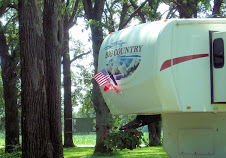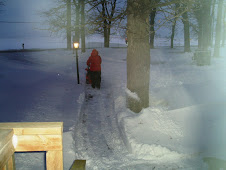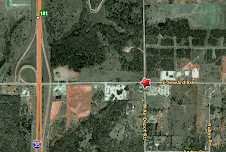 |
| The town of Leetown once stood in this clearing. Only a child's grave is left. |
Lyman G. Bennett, private, 36th Illinois Infantry Regiment, wrote: "Entering a little clearing, we discoved the yellow hospital flags fluttering from the gables of every house in the hamlet of Leetown, and the surgeons busy with the sad, yet humane task that was theirs to perform."
Surgeon D.S. McGugin, 3rd Iowa Cavalry, described the hamlet: Leetown consisted of "some fifteen or twenty houses, frame and log, and but one story in height." He described a "small store" as "one story and a half high, about thirty feet long, and twenty feet wide." Surgeon McGugin noted that, "In all, the windows were few and very small, admitting little light and an insufficiency of air, even when the sash frames were entirely removed.....They contained but few of the ordinary domestic appliances, and were wholly wanting in the usual necessaries found in more settled regions."
Two large farms were directly north of Leetown owned by George Sturdy and Wiley Foster. To the east of Leetown, on the south side of the Telegraph Road, was Lewis Pratt's general store. During the battle, General Samuel Curtis, the Federal Army's commander, used Pratt's Store as his headquarters. Lewis Pratt's daughter was married to one of Cox's sons from Elkhorn Tavern.
On March 7, 1862, the Federal battleline was only a half-mile north of the village. According to Dr. McGugin, "all the houses within three miles of the field were taken for hospitals."
Leetown was devestated by the battle. The fields and woods were filled with the debris of battle and the stench of death filled the air. Many of the families moved to the nearby community of Pea Ridge and rebuilt their lives there.
Some families remained and tried to return to life. In 1881, the Saint Louis & San Francisco Railroad built a branch line through northwest Arkansas, passing through the town of Rogers about 12 miles to the south. Those who had not left due to the war, moved to Rogers.
The only visible reminder that there was once a town here is the grave of Robert Braden. He was born in 1864 and died in 1866.















No comments:
Post a Comment